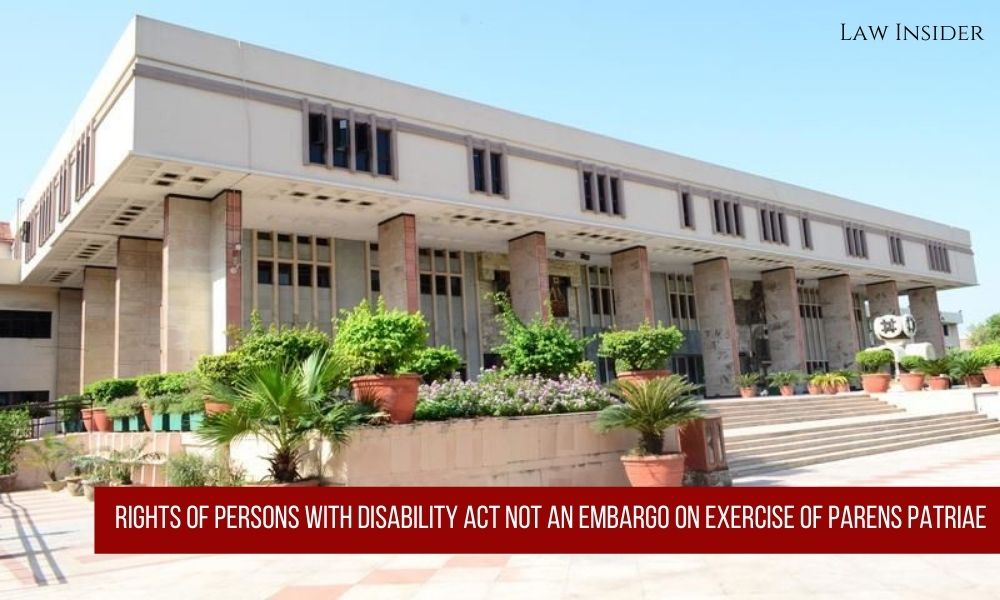Aayushi Srivastava –
Published On: November 2, 2021 at 19:00 IST
The Delhi High Court’s single judge bench, led by Justice Pratibha M. Singh, ruled that the Rights of Persons with Disability Act, (RPwD Act) 2016 does not obstruct the court’s exercise of parens patriae jurisdiction under Article 226 of the Constitution.
The Court observed, “So long as the “wills and preferences” of the mentally ill person and the other factors set out in the rules are borne in mind by the Court exercising parens patriae jurisdiction, it cannot be held that the High Court exercising power under Article 226 is denuded of power in view of the provisions of the RPWD-2016 Act or the Rules thereunder.”
Mr. DMP who was diagnosed with Frontotemporal Dementia in 2019 filed a Petition before the Bench.
Mr. DMP is a seven-term Member of Parliament from Bihar who has a large number of movable and immovable properties totaling more than Rs 3000 crores.
Conflict had arose between the wife of Mr. DMP, his two sons and their families on the one hand and his companion, Ms. UD, his brother, Mr. US, and his daughter-in-law from his deceased son on the other hand.
Given Mr. GUMP’s mental condition, his wife has filed the present petition praying that this Court exercise its parens patriae jurisdiction.
The Court observed that the Court cannot be rendered helpless, especially while exercising parens patriae jurisdiction.
It was further added that “The deletion of provisions with respect to property and affairs and the absence of any provisions in respect of immovable or immovable assets, financial affairs, legal capacity, legal aid, etc. in the said statute is clearly a conscious departure from the earlier regime. Such issues are dealt with under the RPWD-2016”.
Click here to read/download the Order
Also Read: Comparison between Indian and US laws regarding the discrimination

